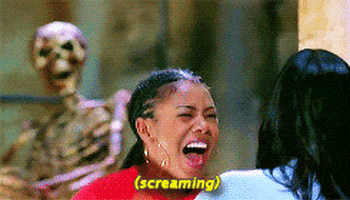#film parody
Text

Coming to the small screen this 2008, it's the bolt kicking crimefighter; Secret Agent Clank!
Extra Life donor Clone requested Secret Agent Clank. Thanks for the donation!
#secret agent clank#ratchet and clank#clank#klunk#film parody#movie poster#psp#playstation#fanart#sony#james bond#60s#thecittiverse#cittiverse#extra life#suit
25 notes
·
View notes
Text
The Cishet 1990s American Father-Son Movie, Good Omens triggered.
For those who are confused, @howmanyholesinswisscheese made a heartbreaking Good Omens post. Read it and weep.
The reblogs however degenerated into a Cishet Father-Son saga, since you maggots are all my adoptive parents. Here is a more polished version of my latest contribution to the hellsite.
[Opening credits play over highly saturated, sundrenched midwest farmland. Bob Dylan's Sara plays and the title appears as the camera slows to a halt in front of a sprawling house.]
[TITLE: Farewell, Iowa, We'll Meet Again, a Gus Van Sant film]
Art 'Greeny' Matthews, a man who does an honest day's work in the farm and is pretty darn proud of it, wanders through his house. His wife Darlene just left him (hence the opening song), and he is faced with the prospect of raising his only son, a ten year old lad Asmond 'Mond' Matthews, on his own.
Greeny takes Mond along with him as he works in the farm on holidays, riding in the tractor. Mond cries about Darlene, who didn't even leave a note, the hussy, and Greeny comforts him as much as he can. "It'll be alright, son," Greeny says on Mond's eleventh birthday, as they sit in the stable with a badly made cake on the wobbly stool. "Just you and me, eh? Not bad!"
"I hate chocolate," Mond whispers miserably, and the birthday party ends in more tears.
When Mond is thirteen, he starts to grow more closed with his emotions, just helping his dad around the farm. They're making a huge profit, and Greeny has business deals and free time, and makes an effort to bring Mond along to golf games and such. Mond is being bullied in school for being caught writing poetry, but he refuses to tell his dad why he comes home with a black eye every other week.
"I'm always here if you want to talk over a game of catch, son," Greeny tries one day. "No thanks, dad," Mond says, and wanders away into the stable. At fourteen, Greeny tries to bring him on fishing trips to discuss his feelings, as they used to do back when Darlene lived with them. Mond swallows, but shakes his head.
Finally, Mond can't keep it from him anymore, and when Greeny finds out, he goes into a rare fit of temper. "Just like your mother, boy!" he says, hand rattling his mug of ale. "A wanderer and a careless fool, that's what you'll turn out to be! There ain't no place in this world for people livin' in their heads."
Mond doesn't write poetry anymore.
As Mond grows, though, he helps out more with the farm, and they bond over hopes for future profit, and joking about golf, which they both find pretentious. "C'mon, champ, let's go play golf," Greeny says while they watch suited businessmen make their way to the house, out of place amidst the yellow-green farmland. "What's your favourite golf club?"
"That a literal club, or the thing they whack the ball with, dad?" Mond responds, and Greeny chortles. "I taught you better than that, son."
He has high hopes for Mond, he will take over the farm. Greeny is growing weary of his duties, he married late and had Mond even later.
[Montages of sunlight days ensue, intercut with shots of Mond, who always has a melancholic air about him. His mother was a dancer, and that rebellious spirit, so long dormant, is beginning to stir as he enters his twenties.]
On his twenty-first birthday, Greeny has baked him a cake, not chocolate. Mond barely sees it. His father doesn't know him. Not really. Not at all. When Greeny says he is handing over the farm to him, and starts to give him instructions about the responsibilities, Mond has had it.
He picks up the rucksack he's been storing by the umbrella stand for weeks, and shoulders it as Greeny pauses mid-lecture. "I'm sorry, dad," Mond says. "I'm going away to be my own man. This was your dream. Not mine."
Greeny is too frozen to stop him.
[Knockin' on Heaven's Door by Bob Dylan plays with another montage]
Mond travels the States, far from home and Iowa, and after a year of struggle finally publishes his first anthology of poetry. Hoping to make his dad proud, he sends a letter home asking if it imperative he return, since he's too ashamed to say he wants to. The reply is a brief but polite no from the housekeeper, saying his father wishes him well but does not require that he return. Assuming Greeny wants nothing to do with him, Mond stays away, bitter and homesick.
He is called home a few months later, and when he arrives, he is met not with Greeny, but with the housemaids and farmhands in black, and the housekeeper teary-eyed as she guides him to the back garden and a lonely gravestone. Greeny, heartbroken by his son leaving the same way Darlene his wife did all those years ago, declined in health, but he kept up the farm till the end, all ready for Mond should he want it after all, and for the head farmer if he didn't.
Mond, still carrying his book hoping to have shown his dad at last, stares in shock at the gravestone. He thinks even at the end Greeny did not know him, thought he would want the farm. Until he reads the inscription. Art 'Greeny' Matthews, friend to all, loyal husband, and most of all, proud father of a poet.
His father knew, Mond realised. His father knew what he'd been doing.
"Are ya proud, dad?" Mond whispers, dropping the book and kneeling down before the stone. "Are ya proud? It was all for you."
[The camera pulls back to show the farmland, scattered with people in black going about their work because business stops for no one, and a solitary figure by the gravestone. Bob Dylan's Blowin' in the Wind plays as the end credits roll.]
"How many roads must a man walk down, before you call him a man?
How many seas must a white dove sail, before she sleeps in the sand?"
The end.
@howmanyholesinswisscheese The challenge has been issued.
#good omens mascot#90s movies#cinema#cinema parody#gus van sant#good will hunting#my own private idaho#weirdly specific but ok#asmi#creative writing#writing#film writing#film parody#maggots#bob dylan#blowin in the wind#sara#father and son
38 notes
·
View notes
Photo

Sharon Tate photographed for MGM Studio’s “Don’t Make Waves” in 1966
71 notes
·
View notes
Text
Oh no! Trouble in Paradise
11 notes
·
View notes
Text
When Anaidon is told "Work on your entry".
Posted it on twitter but thought I'd post here too.
6 notes
·
View notes
Text

Weird The Al Yankovic Story
I'm an 80s child and a 90s teen, so I grew up in the grand era of MTV. I grew up singing to Michael Jackson, Madonna, Queen, Elton John, rock bands and all the other music genre popular at the time. . . And I grew up listening to Weird Al's master parodies. I watched his movies too. My brother and I were counting the months to see this "biographical" movie about one of our favorite music artists and today we finally watched it. I will say that I had expected some sort of alternate universe sort of story because of what Daniel Radcliffe said in an interview but this movie is so wild that the audience knows this is anything BUT a biographical film. And that's when I realized that he didn't want to tell his story; he was doing what he does best: a parody of biographical films. BOOM! Blew my mind.
Biographical films have always been popular and lately we've had some really good ones about musicians: Bohemian Rhapsody (2018), Rocketman (2019) and Elvis (2022). Weirld Al takes his life and turns it into a parody of this genre, incorporating all the clichés typical in this kind of film: the rearrangement of events to create tension and move the plot; unsupporting parents, lovers that use them to better their careers and at the end reconnecting with the people who love them.
The movie starts with Weird Al taken to a surgery room and then moves us back to the "beginning" - his childhood. This reminded me of Rocketman that starts with Elton John leaving a concert and arriving to a group therapy session and from there, taking us to his beginnings - his childhood. But these movies don't only start in mid- plot, they also change order in which certain things happened and embellish relationships to hint at things that are not accurate, in a way that stretches or softens reality. For example, in Elvis, the relationship between Elvis and Priscilla is presented in a way that romanticizes their relationship. In Bohemian Rhaspody, makes it look like the band split up because Freddy wanted to make a solo album when it was another member of the band who expressed this need first, and this is one of many different changes. In Rocketman, it is hinted that Taupin wrote "Your Song" for Elton when Taupin said in an interview that it wasn't so. All these changes drive the plot of the story but by changing things, the story is no longer being truthful and what's real is transformed into fiction. And good fiction has great antagonists.
In this version, Weird Al's parents are anything but supportive just like we see in Bohemian Rhaspody and Rocketman. These three musicians share their desire to be accepted by their fathers. This hurtful father-son relationships trigger their sadness and strangles their ability to accept themselves as they are, hence the hiding of their true selves. We might no see this in Elvis, but we have the mentor who manipulates and isolates him from those he loves which we also see in Bohemian Rhaspody (Freddy's relationship with Paul), and Rocketman (Elton's relationship with his manager). In Weird, we have Madonna as the lover who isolates him from his friends and he takes this to the extreem by adding fight scenes, and a kidnappings by a drug lord. But all these fictionalized biographies are inspiring because these people were/are agents of change and were able to achieve their goals; they fell but were able to heal and rise again.
Weird Al's contribution to pop culture in the United States is huge and he inspired us to be as "weird" as we are. But there is something else that I liked about this mega fictionalized "biography" - the criticism on the concept of originality and creativity. In the film, people in the industry and his parents kept telling Al that his songs had no value because they were using the music of existing songs. Remix Culture experts like Lessing, Jenkins and Ferguson are very clear on the fact that all creative work is based or influenced by those that came before. What makes something "original" is it's transformative nature and Weird Al transforms each song into something totally different, totally new and it's protected by Fair Use. Some artists didn't mind being parodied while others did. And he presents both sides in the movie by putting himself in their shoes by having his song "Eat it" come before Jackson's "Beat It''. It's funny to see him enraged, refusing to sing the song because he thinks people will connect it to the "parody." It just shows how ridiculous it is. In the other side, we have artists who see the benefit of having their songs parodied- new and old audiences rediscover the original songs and artists, thus bringing new profit.
This is a brilliant and weird as hell movie with criticism hidden in the laughter. Don't see it expecting to learn who Weird Al is outside of his profession because this film is another parodes masterpiece.
#biographical films#elvis#bohemian rhaspody#rocketman#Weird Al#weird the al yankovic story#daniel radcliffe#music parody#film parody
11 notes
·
View notes
Text

#scary movie#parody#horror#horror movies#horror films#the signs as#gif#altgirl#horror comedy#horror art#altgirlaesthetic#90s horror#alt aesthetic#2000s horror
549 notes
·
View notes
Text
Reading The Song of Roland and y'know it's nice to read an Ancient, Respected Classic that's just. Trash. A jingoistic action movie. The 11th century equivalent of 300, a historical war depicted in a wildly inaccurate and propagandistic way as an excuse for buff macho warriors to face off against poorly-researched stereotypes of foreign enemies and then kill them in spectacularly violent and improbable ways. You want depth? Nuance? Timeless themes that still speak to the common human experience nearly a thousand years later? Fuck you. You'll take Charlemagne's nephew cutting a Saracen in half with his sword and you'll like it.
#i kind of want a film adaptation that plays it completely straight to the point of parody starship troopers-style#but given how large the unironic fash following would be i'm not sure you could make it in good conscience#i also want to see a sung performance because a lot of these repetitive parts probably work a lot better that way#idle musings#walrus reads old books#walrus consumes media
407 notes
·
View notes
Text
Judging by that teaser trailer Barbie’s going to be the best movie ever made, isn’t it?
#2001 parodied in a film about Barbies??#THIS WILL BE HIGH CAMP#barbie#margot robbie#Ryan gosling#non royal
2K notes
·
View notes
Text
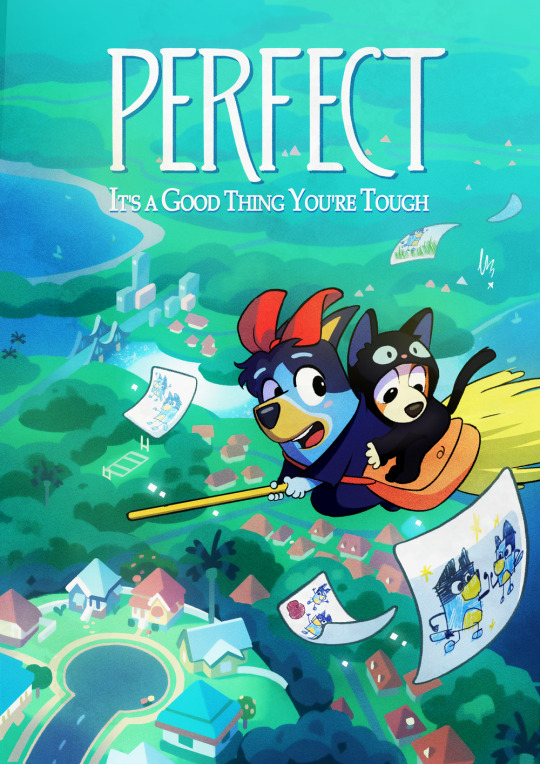
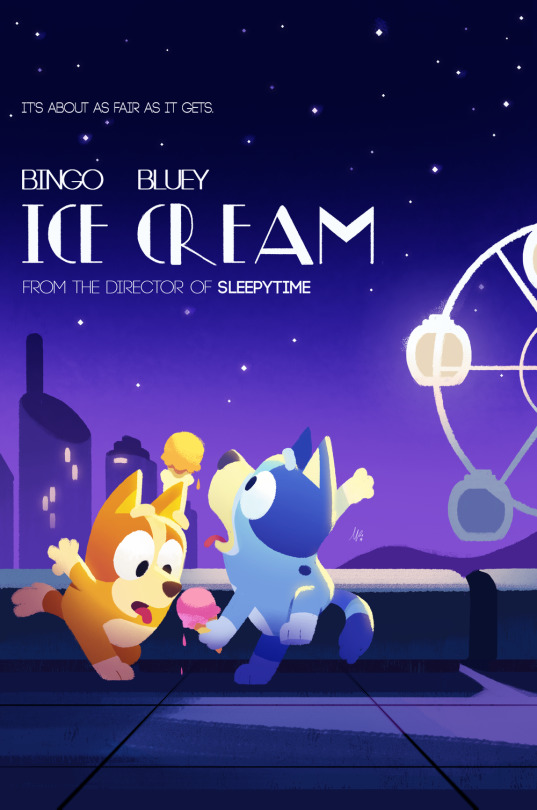
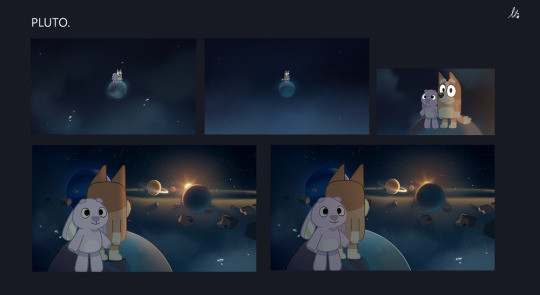
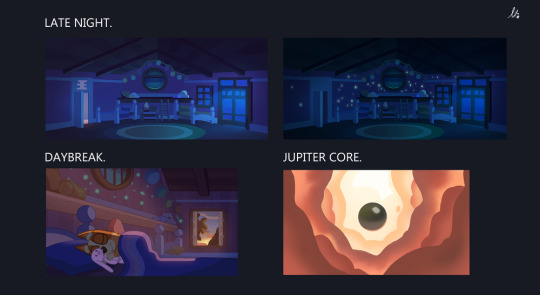
Art by Costa Daniel, Bluey's lead Art Director.
#This is so awesome! And I'm pretty sure the Ice Cream poster is parodying some#Film too but I don't know which!#Edit: Been informed it's La La Land#Edited Alt Text to reflect as such#Bluey#Art#Bluey Heeler#Bingo Heeler
129 notes
·
View notes
Text

193 notes
·
View notes
Text

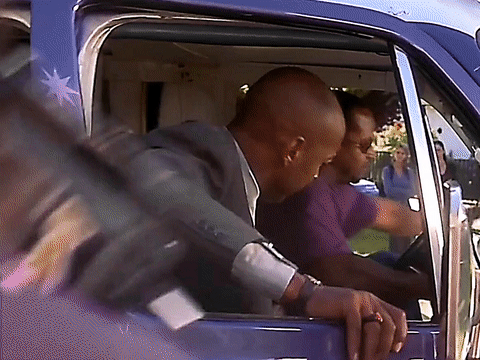

SCARY MOVIE (2000) Dir. Keenen Ivory Wayans
#peter bryant#scary movie#parody movie#comedy#cinemaedit#filmedit#comedy film#filmgifs#horroredit#moviegifs#horrorgifs#2000s
333 notes
·
View notes
Text

#barbifier#terrifier#art the clown#antagonist#parody#slasher movies#supernatural horror film#fictional character#horror movies
301 notes
·
View notes
Text

fake movie poster
here the og image
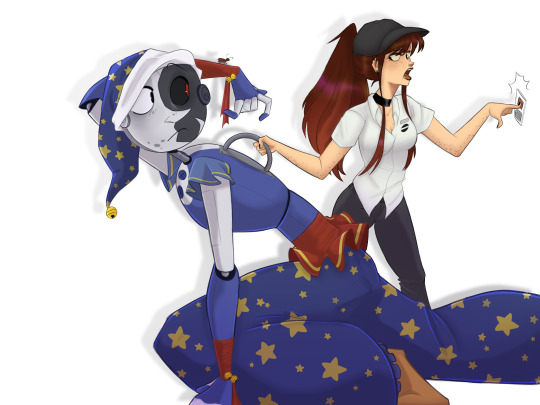
#moondrop#art#daycare attendant moon#fnaf oc#fnaf security breach#fnaf moon#moondrop art#security breach oc#security breach moondrop#fnaf moondrop#Fake movie poster#Art#film poster#Parody
145 notes
·
View notes
Text


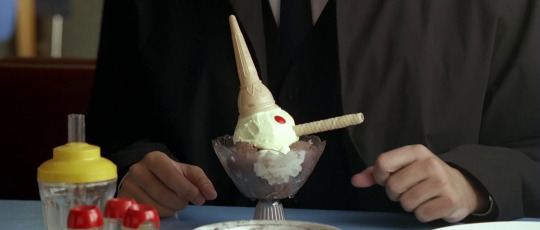


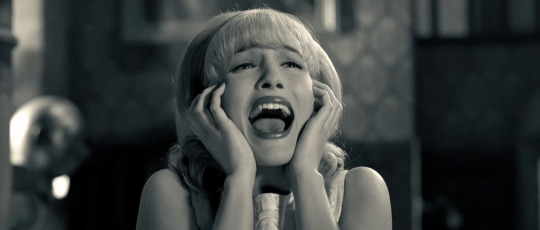
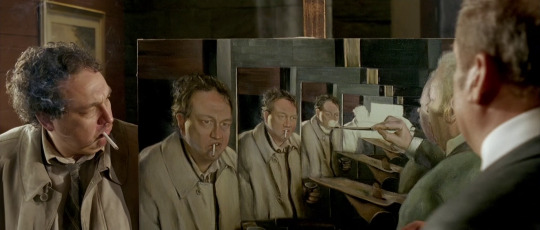
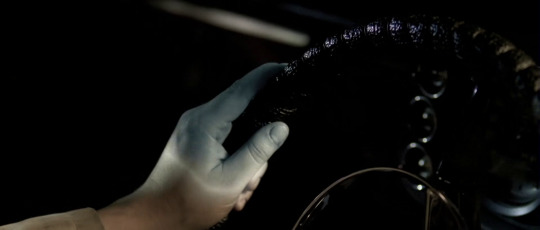
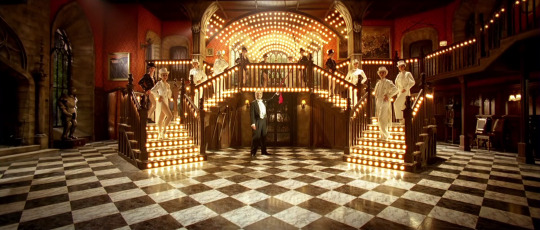
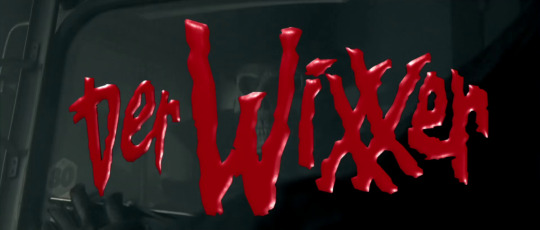
"The nicest thing you ever said to me was 'There, you can have my coffee. It tastes like shit.'"
Der Wixxer (The Trixxer), 2004.
Dir. Tobi Baumann | Writ. Oliver Kalkofe, Oliver Welke & Bastian Pastewka | DOP Gerhard Schirlo
#der wixxer#the trixxer#german film#2000s#parody#crime film#bastian pastewka#oliver kalkofe#german stuff#10 frames
152 notes
·
View notes
